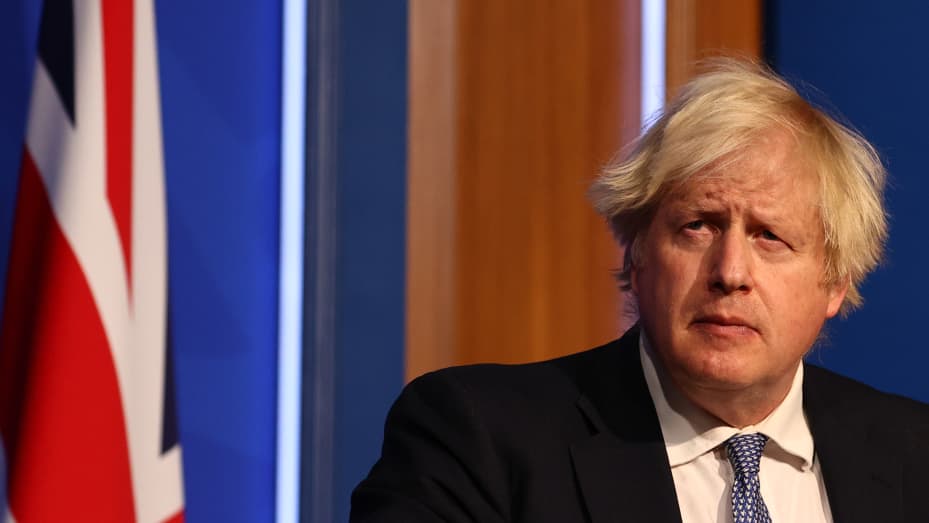Distrust and disengagement in politics is here to stay
News & Social Media / Post
Distrust, disengagement and discord will be the disgraceful legacy of the Westminster establishment

There’s a certain utility in maintaining a level of disengagement from politics every now and then. It helps me measure my priorities against those of the media bubble. They have it that Partygate is an unprecedented erosion of standards in public life that has, perhaps irrevocably, damaged trust in politics.
My cynicism is far more advanced than this. I was not rocked or angered by anything I read about Partygate. I found the whole affair rather wearisome. I understand I speak from a privileged position in that I wasn’t deprived of the opportunity to say goodbye to a dying loved one while flagrant rule breaches were in progress. But even then, I don’t expect better of politics. Perhaps I’ve been in the game too long.
But then I’ve always been more interested in the issues than the soap opera of politics. The more interesting blogging is when you’re looking at why failures occur. That requires a broader understanding of the subject matter and a historical context. That’s what made Brexit so engaging. There was a space race to build narratives based on our respective understandings of the situation. I like to think that I in some small ways influenced things.
That’s the kind of politics I would like to get back to, but sadly, it all gets shunted out of the Overton Window being that our media only ever does one issue at a time to the expense of all others. If you’re not aboard their train, you’re milling around on the platform waiting for the next one. Sometimes the train is too packed and it makes sense to stand back and let it go on without you. This was one of those times.
Looking at politics in the round, I wouldn’t really care if there were Satanic orgies in Number Ten were it that the government was doing what it was elected to do. That it is failing by every other measure is what makes Partygate a proxy issue by which to remove the PM.
Increasingly, though, it looks like Johnson could weather the storm, largely because the media have overplayed their hand and it starts to look more like a witch-hunt for its own sake. Especially so with the allegations made by Nusrat Ghani, who claims she was sacked for her “muslimness”. If forced to pick a side (with a gun to my head) between the media and the Johnson administration, I choose the latter. The British media is hardly in a position to be lecturing anyone about standards and integrity – and you could be forgiven for thinking that much of the outrage is entirely performative.
Similarly, I can’t take seriously the sternly written newspaper columns about trust in politics by those who cheered on every attempt to block or frustrate Brexit. They’d have been overjoyed had they succeeded, entirely heedless of the damage it would have done to the social contract. The most basic standard of all in our system is that our votes should be implemented. These same columnists then wonder why the PM has such hard wearing Teflon.
We know they want rid of Johnson, and there is cause to support that view, but we have to ask what it is they want instead. In what way does that remedy trust in politics, or address the widespread disaffection?
Here we should not forget that Johnson is not the populist demagogue they think he is. He has carried out his part of the grand bargain for his premiership – that of taking us out of the EU, but in all other respects it’s business as usual for the establishment. Instead of a Brexit agenda, we get Net Zero. At the height of an energy crisis and a cost of living crisis, exacerbated by green policies, their answer is more of the same – but harder and faster.
Meanwhile the vast majority of the public wants to see Britain get a grip on immigration. We’re not going to get that from Johnson, and there is no intention of doing anything useful like withdrawing from the 51 Convention, but Johnson’s supporters know that for all his underperformance, it could be a magnitude worse under Labour.
There again it’s hard to take elite columnists seriously when they talk about standards in public life when they refuse to enter any serious dialogue about the issues ordinary people care about. There is a clear disconnect between the morality of the public and the morality of the establishment which will gift a legal defence to Somali gang rapists to evade deportation the likes of which most ordinary people could never afford.
Whenever we see marginal tinkering dressed up as reform, we are told by the great and the good that it marks a dark and dangerous drift toward fascism, utterly robbing the word of any meaning. The very people who bewail Johnson’s “populism” are the very people who prevent meaningful reform, causing the very electoral backlashes they complain about.
If anything has caused a collapse in public trust, it’s the realisation that voting isn’t working. Politicians will sweep child grooming and honour killings under the carpet to instead takeout Islamophobia. It has not gone unnoticed that our cities are increasingly foreign places, where crime that was once shocking is an every day reality. That reality goes unmentioned in our politics. On the one hand we have a Tory party that will do little to stop the invasion of Dinghies, and on the other, a Labour party that will send our buses to collect them from France – to yet again dump them in the slums of northern England and expect the rest of us to mop up the disastrous consequences.
Ultimately, Johnson isn’t the cause of the disaffection. He is a symptom of it. That so many are willing to tolerate him is a damning indictment on all of his opponents. They who can’t even define a woman and would lock up rapists in women’s prisons. They who would have us all still under strict lockdown. They who would re-join the EU without a referendum if they thought they could get away with it. They who think more green taxes are the route to prosperity.
That Johnson is seen as a wrecker by the enlightened ones does not carry weight with me. He’s just another in a long line of deadbeat politicians who failed to grasp the many nettles. Another wastrel who took the path of least resistance and let the country slide further into the abyss. Perhaps worse in that he failed to heed the warning that Brexit represented. Brexit was an invitation to the establishment to get real and heed the people. Instead, they did what they always do and returned to their myopic, narcissistic fantasies. The very same ones that sees Europe paralysed in the face of an aggressor as Germany realises the cost of its idiotic energy policies
The main reason to withdraw from politics is the fact that it’s not going to get any better – or at that it has to get a whole lot worse before there’s the opportunity to turn it around so you may as well let them get on with it. Our universities will travel further up their own woke backsides, our councils will morph into regional development agencies in which we have no representation, our police will further entrench themselves in politically correct derangement, machete gangs will be the new normal even in the suburbs, while third world ethnic conflicts are played out on our streets. A generation will be priced out of owning a home and raising a family while we import more replacements. Our politicians will continue to evade these topics while Twitter sanitises public debate for them so they never have to encounter angry voters.
I won’t say Boris Johnson has been a huge disappointment since I never expected anything of him to begin with. He delivered Brexit, after a fashion, but his stint in office will go down in history as a squandered opportunity. The opportunity was there, but the tenacity and courage was not. Johnson didn’t break trust politics. He merely removed all doubt that it was ever trustworthy to begin with. And that’s probably a good thing in the long run.
Recent National News











